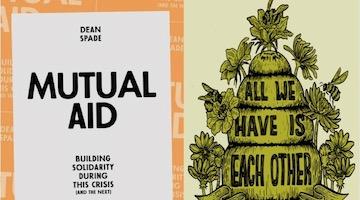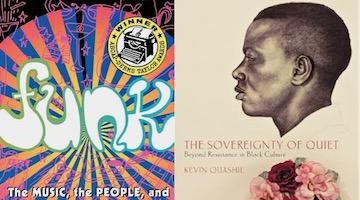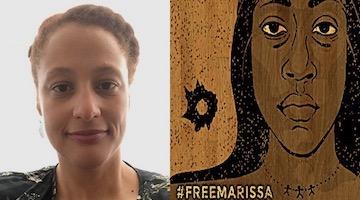Mutual aid efforts are proliferating in this time of epidemic, organizing communities towards self-determination by creating mechanisms that oppose the state violence.
“Support organizations need to think through safety teams for their building, blocks, streets, or even whole neighborhoods without relying on the police or the state.”
In this feature, we ask organizers involved in mutual aid projects to share a little bit about their work. We understand mutual aid work as the part of social movement organizing that meets people's direct needs. Unlike charity work, however, mutual aid is part of a broader strategy to address the root causes of injustice by mobilizing people to dismantle structures of domination and build the world we want.
Mutual aid efforts are proliferating as people respond to the Coronavirus pandemic. You can track emerging projects atmutualaidhub.org, and we recommend checking out this useful guide from Mutual Aid Disaster Relief about how to start COVID-19 mutual aid projects and do the work safely and effectively. We also recommend the Big Door Brigade’s Mutual Aid Toolbox and this shortmutual aid explainer video, for starting conversations about what mutual aid is and why it is a vital tactic to expand right now.
This week, we had the honor of interviewing Ejeris Dixon.
Dean Spade and Roberto Sirvent: Can you please tell readers of the Black Agenda Report a little about your background and the mutual aid work you have been involved in?
Ejeris Dixon: I’ve been involved in organizing to increase safety for communities of color and particularly Black, Indigenous, People of Color (BIPOC) Queer and Trans Communities since 2005. My work is in organizing communities towards self-determination by creating mechanisms that oppose the state violence we experience as QTPOC and by creating systems to increase our safety with each other. I have a long history of co-creating campaigns, programs, resources, and support to address violence including homophobic, and transphobic violence, sexual violence, intimate partner violence, police and state violence. From 2005 – 2010 I was the Founding Program Coordinator for the Safe OUTside the System Collective at the Audre Lorde Project, where we worked on programs and campaigns to create safety for QTPOC communities without relying on law enforcement. Now I’m the Director of Vision Change Win Consulting and I support organizations to create their own community systems, programs, and campaigns to address violence without relying on the police or the state. When I was at the Audre Lorde Project, one of the safety strategies that I helped co-create involved recruiting local businesses and organizations to agree to de-escalate violence against QTPOC folks (and all people) and training them in de-escalation skills. We used the trainings to build a neighborhood network in Central Brooklyn to address violence through de-escalation as opposed to relying on the police. Currently, at Vision Change Win I support groups to create plans to think about strategies to address violence within their groups, what they will do if someone attacks someone, threatens someone, commits sexual violence, etc. I give trainings about how to create safety without the police at actions and demonstrations, within organizations, within coalitions, and even larger areas. I support organizations to think through safety teams for their building, blocks, streets, or even whole neighborhood.
How does this work fit into the broader struggle for change you are working on? How does it mobilize for change rather than merely being a “band aid” on a harmful system?
I believe an essential part of movement building is relationship building. Community safety campaigns or creating safety in public spaces outside of relying on law enforcement requires “un-strangering.” It not only is completely outside of harmful systems but it also builds webs of people that can mobilize on other issues together in addition to addressing violence and safety. It also requires leadership development in terms of building skills to create community safety, including creating safety plans, de-escalating incidents of violence, and caring for each other in the aftermath of being attacked or targeted. Since there are no movements without people willing to uproot their everyday lives to show up for each other, I consider creating community safety essential organizing and movement building work. This work is more than a band-aid because we’re not working on policy interventions to make law enforcement less violent. Instead, we’re co-creating the world we believe in.
Have you seen dangers of co-optation of the mutual aid work you have done? What structures or methods have the organizations or projects you work with put in place to address that danger?
Yes! There is a way that the language and theory of transformative justice, abolition, and community accountability have become really exciting and compelling to so many people. This is a good thing! So we did the thing that Toni Cade Bambara talks about to “make revolution irresistible.” However, this good thing has a downside. I’ve been approached by people deeply embedded within courts and law enforcement to give advice on their “transformative justice projects.” If I’m truly honest I know that there are people deeply within state systems that know that those systems don’t work. And I want everyone to think about addressing the harm and violence of the state. However, an alternative to incarceration programs isn’t transformative justice. Even if you call it transformative, it doesn’t actually disrupt or transform the power dynamics within prisons, courts, and policing. These programs don't change how oppressed communities are being targeted for arrest, how police presence disrupts people’s lives, and how police traumatize and abuse people. They are often designed in ways that mean that our communities can't successfully complete them and end up in the system anyway. Transformative justice has as a central principle that we must create community safety outside of state systems. I haven’t put structures in place to prevent co-optation – but I think it’s really important to remind and continually emphasize to people that transformative justice and community safety work is outside of state systems.
What are the pitfalls of mutual aid work, from your experience?
I am concerned that sometimes people are engaging in mutual aid work because they have given up on directly confronting state violence. Or that they have given up on large-scale movement building projects that involve connecting themselves past people in their immediate circles. I think that we need to do both – use mutual aid to create the world we desire. We must continue to ensure that mutual aid projects can build up to a scale that can meet people’s needs and build the new world we want and need, and that work has to include base building, mobilizing, and relationship building. And we must ensure that we continue to organize against the increasing harm of state violence –including the punishment systems, border enforcement, the military, the foster care system, etc..
In order to survive we need to create the world that we want. But when we do that in absence of pushing against state violence, harm, and power – we leave people behind. I also feel that mutual aid work has become a place where some people are pretending and ignoring a need to create a larger vision of liberatory governance (if that exists?). I want to talk about how we navigate harm and distribute resources in a liberated world. I’m so hungry for us to debate around what systems do we think should be abolished, versus what systems are we keeping (if any). Sometimes I see people choosing mutual aid from a place of political acquiescence – from giving up on other forms of organizing and movement building and I want so so much more than that.
“What systems do we think should be abolished, versus what systems are we keeping?”
I’m not anti-systems, and I don’t think that mutual aid will get to the scale anytime soon of being able to handle large scale food insecurity, houselessness, or medical care disparities. Of course, public benefits systems as they are currently designed are oppressive, but I also believe in fighting for people to get their benefits now. It is not as simple as abolishing all state systems, but it is about creatively imagining what we can put in place of brutal systems like the criminal punishment system. For example, I think that public education shouldn’t be abolished. While there’s a lot of criminalization, oppression, harm, and huge disparities for oppressed communities – I’m curious about ways to shift that system. It also doesn’t mean I don’t believe in mutual aid – I just believe in multi-tactic strategies.
Something that comes to mind is that Lucas Shapiro, an organizer in New York, just placed two maps up on social media. One was of the distribution of mutual aid projects around the Coronavirus, another was the distribution of Coronavirus cases. There was a disconnect around class, around access to mutual aid projects near or connected to public housing, and a higher proportion in gentrifying areas. I think we have to be careful because sometimes people are creating mutual aid networks on top of longer term community support systems that they don’t know about because they are newer to the city, and sometimes because they haven’t felt comfortable engaging with their neighbors.
Do you think mutual aid work has any special or particular role in the current conditions/crises?
I have a dear friend who has talks about how the left needs to recognize the strategic difference between organizing under neo-liberalism and neo-fascism and I am semi-obsessed with that question. What I think is important around mutual aid work is that the systems that have always worked to oppress communities of color, queer and trans folks, immigrants, disabled folks, sex workers, poor people, etc…are beginning to obviously look unstable to people outside our communities. Mutual aid is about co-creating the systems we need to survive these conditions – so that we can continue to fight against the oppressive systems. Mutual aid work is life-saving. And as long as we ensure that we are doing this work in ways that is fueling movement building, then it’s the exact work we need for these times.
Do you have ideas about how mutual could expand or mobilize more people?
Yes! I think we need a mobilizing and relationship building strategy within our mutual aid projects. Sometimes I see people focusing solely on building support for people they already know. However, I often wonder how people can get involved in mutual aid projects outside of activist circles. How can people who are practicing mutual aid right now who may not be connected with the language of mutual aid come to see themselves within it? (i.e. there is a long-standing Black-led Private Ambulance Service in my neighborhood in Bed-Stuy, Brooklyn but I’m not sure if they would see themselves as a mutual aid project.) How are we having interwoven, interconnected mutual aid neighborhood groups, online forums, and in-person gatherings? And I think the strategies are old-school and simple. I would love for folks to do outreach to new potential members within their mutual aid projects weekly, or even monthly. I would love for folks to ask themselves why or why not are their mutual aid projects conducting outreach, doing leadership development, and mobilizing for actions together? What’s needed to get to that place? And what assumptions are holding people back from that possibility?
Are there any examples of other mutual aid work, historical or contemporary, that particularly inspire you or that you have used as a model?
The Black Panther Party’s “Serve the People” programs have so so so much to teach us about mutual aid! I’m especially thinking about the Free Breakfast Program and the Acupuncture programs that they used to support people who were navigating opioid addiction. The Black Panther Party navigated so many critical questions around mutual aid, from experiences of state cooptation, to bridging the connections between movement building, mutual aid, electoral strategies, and political education to build a liberatory organization that challenged state power. In my experiences organizing around transformative justice I feel so empowered to think about how to build community defense and community safety systems in a context that builds power for oppressed communities.
What can readers of the Black Agenda Report do to support your work?
There are a few resources that I’m really excited to share with you. I’m hoping that they can further your mutual aid, transformative justice, and community building work.
We always need donations because we don’t take grant funding at Vision Change Win. And we have incredible practice partners around the country who always need volunteers – please reach out if you want information on volunteer opportunities.
Thanks for doing this!!
Dean Spade is the creator of the mutual aid toolkit at bigdoorbrigade.com. He has been working in various poverty-focused and abolitionist mutual aid projects for the past 20 years. He is the author of Normal Life: Administrative Violence, Critical Trans Politics and the Limits of Law (Duke University Press 2015). His video projects and writing are available atdeanspade.net.
Roberto Sirvent is Professor of Political and Social Ethics at Hope International University in Fullerton, CA, and an Affiliate Scholar at Yale University’s Interdisciplinary Center for Bioethics, where he directs the Race, Bioethics, and Public Health Project. He is co-author, with fellow BAR contributor Danny Haiphong, of the book, American Exceptionalism and American Innocence: A People’s History of Fake News—From the Revolutionary War to the War on Terror.
COMMENTS?
Please join the conversation on Black Agenda Report's Facebook page at http://facebook.com/blackagendareport
Or, you can comment by emailing us at comments@blackagendareport.com















